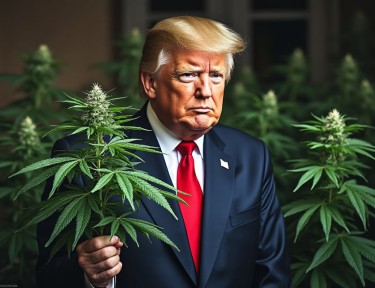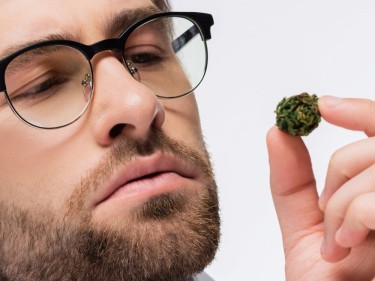Cannabis News
Over 600 People per Day Were Arrested for Simple Marijuana Possession in 2023
Published
6 months agoon
By
admin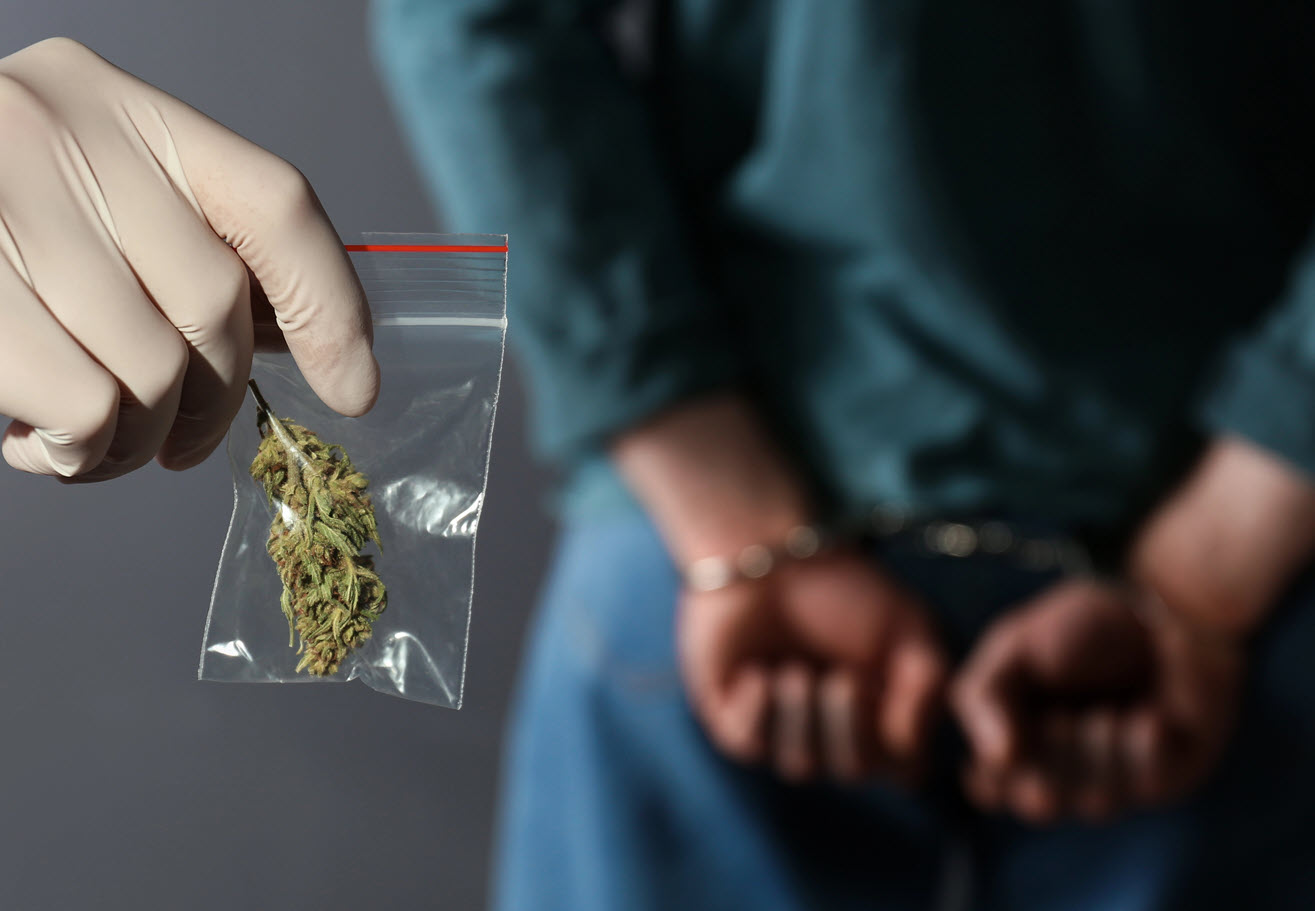
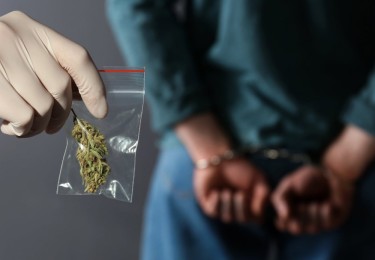
The Drug War Machine Trucks on
As I sit here, rolling up my morning joint, I can’t help but marvel at the paradoxical state of cannabis in America. On one hand, we’ve witnessed a green wave of progress sweep across the nation. From the rocky coasts of Maine to the sun-kissed beaches of California, the majority of states have embraced some form of marijuana reform. Medical programs flourish, recreational markets boom, and politicians who once demonized the plant now champion its potential. It’s a far cry from the “Reefer Madness” days, and for a moment, it almost feels like victory.
But as the smoke clears, a sobering reality comes into focus. Despite this unprecedented progress, the gears of the Drug War Machine continue to grind, harvesting individual souls with ruthless efficiency. The plant that brings relief to millions, sparks creativity, and offers a safer alternative to alcohol is still treated as a menace in many jurisdictions. It’s as if we’re living in two Americas: one where cannabis is celebrated and another where it’s criminalized.
The cost of this dichotomy isn’t just measured in arrest statistics or wasted tax dollars—though those numbers are staggering. It’s measured in shattered lives, broken families, and communities torn apart. All for a plant that’s arguably the safest among the pantheon of substances available to the average human being. The irony is palpable: in one state, you can walk into a sleek dispensary and choose from a cornucopia of cannabis products. Cross an invisible border, and you might find yourself in handcuffs for possessing the very same plant.
In today’s article, we’re going to dive deep into the FBI’s crime statistics for 2023. These numbers tell a tale of two Americas, highlighting that despite positive moves by individual states, the specter of prohibition still looms large. Until we see a complete national—and dare I say, international—shift in cannabis policy, people will continue to suffer under the weight of outdated and unjust laws. So, let’s peel back the layers of progress and examine the work that still needs to be done. The Drug War Machine may be sputtering, but it’s far from dead.
Let’s dive into the cold, hard numbers, shall we?
According to the FBI’s latest Crime in the United States report, a staggering 220,000 marijuana-related arrests were made in 2023. Brace yourselves for this kicker: the majority of these arrests were for simple possession.
That’s right, folks. We’re not talking about kingpins or violent offenders. We’re talking about average Joes and Janes whose crime was having a plant in their pocket.
Now, let’s break that down. 220,000 arrests in a year means about 602 arrests per day. That’s 602 lives potentially ruined, 602 families stressed, and 602 communities impacted—every single day. And for what? A substance that’s legal in nearly half the country.
It’s crucial to note that these arrests aren’t evenly distributed. In states where cannabis is legal, these statistics don’t hold water. The bulk of these arrests are happening in states clinging to outdated models of prohibition like a drowning man to a life raft. The irony? That life raft is actually an anchor, dragging entire communities down.
The Drug War Machine, despite its sputtering and wheezing, continues to execute its programming with the precision of a well-oiled apparatus of oppression. But let’s ask ourselves: what has this achieved? Has it made our communities safer? Has it reduced drug use? Has it improved public health? The resounding answer to all of these questions is a big, fat “No.”
Instead, this relentless grind has torn families apart, destabilized communities, and created hardships that echo through generations. Prohibitionists often parrot the line that drugs rip communities apart, but let’s be real: it’s the enforcement of these draconian policies that does the real damage. Parents labeled as “dangerous substance abusers” are ripped away from their children. People with arrest records struggle to find jobs, housing, and education opportunities.
This cycle of marginalization doesn’t reduce crime—it breeds it.
This is the madness of our current state of affairs, and I hate to be the bearer of bad news, but I don’t foresee any major changes on the horizon, even with a new president. Why? Because the War Machine is adaptable. It aims to embed itself within legalization efforts. Just look at the push for Schedule III rescheduling—a move that would maintain federal control while giving the illusion of progress.
The truth is, many of us are now in cannabis-friendly places, enjoying the fruits of reform. But our brothers and sisters stuck in prohibition land are still feeling the blunt force of this failed policy. It’s a tale of two Americas, and the contrast is stark and unjust.
This must change. We can’t rest on our laurels just because some of us can walk into a dispensary without fear. Every arrest is a tragedy, every life derailed is a failure of our system. The Drug War Machine may be running out of fuel, but it’s still claiming victims. It’s up to us—the cannabis community, advocates, and compassionate citizens—to throw a wrench in its gears once and for all. The fight isn’t over until the last cannabis prisoner is free and the last arrest is made.
Alright, let’s take a moment to roll up the good with the bad, shall we? The good news—if you can call it that—is that 220,000 cannabis arrests in 2023 is a far cry from the prohibition peak of 2009 when we saw nearly a million souls caught in the Drug War’s meat grinder. It’s a bit like celebrating that your house is only partially on fire instead of fully engulfed in flames. Progress? Sure. But let’s not break out the champagne just yet.
The bad news? 220,000 arrests is still an atrocious, jaw-dropping, mind-bogglingly absurd number. We’re talking about more people than the entire population of Des Moines, Iowa, facing life-altering consequences for a plant. A plant, I might add, that categorically doesn’t qualify for Schedule I status. Hell, cannabis shouldn’t even be on the Controlled Substances Act at all. And you know what? Let’s take it a step further—the CSA itself shouldn’t exist in the first place. It’s a relic of a bygone era, a fossil of failed policies that we’re dragging into the 21st century like a caveman with a pet dinosaur.
Despite all the smoke and mirrors of progress, the harsh truth remains: the Drug War Machine continues to oppress millions. It’s not solving any actual problems; it’s creating them. This isn’t a war on drugs; it’s a war on people, on communities, on common sense itself. The government wields this oppressive tool like a drunk swinging a sledgehammer in a china shop—causing maximum damage with minimum effectiveness.
Now, I know what you’re thinking. “But Reginald, what about the next presidential cycle? Surely one of these candidates will fix this mess!” Oh, my sweet summer children. Call me a cynic (go ahead, I’ve been called worse), but I don’t trust any of them as far as I could throw them after a dab session. They’re all out there, spouting promises and platitudes, but at the end of the day, they’re just oiling up the same rusty machine that keeps the average Jane and Joe down.
I wish I could tell you exactly how this anti-drug crusade is going to end. I wish I had a crystal ball (or a particularly prophetic strain of cannabis) that could show us the way out of this mess. But what I do know is this: every year we sit on our hands and “wait and see” what happens, hundreds of thousands of lives are negatively affected. Society isn’t better for it. We’re not safer, healthier, or more prosperous. We’re just… stuck.
So here’s my proposal, as radical as it might sound to some: let’s make common sense rule once more. Let’s end the Controlled Substances Act entirely. Rip it up, set it on fire, use it as rolling paper—I don’t care. But let’s be done with it. Then, let’s sit down like rational adults and completely redraft our relationship with drugs of all calibers.
Imagine a world where we treat drug use as a health issue rather than a criminal one. Where we educate rather than incarcerate. Where we help rather than hurt. It’s not a pipe dream—it’s a necessity. Because the alternative is more of the same: more arrests, more lives ruined, more communities torn apart.
The sticky bottom line is this: we’ve tried prohibition, and it’s failed spectacularly. It’s time for a new approach. It’s time to end the war not just on cannabis, but on all drugs. It’s time to build a society based on compassion, understanding, and yes, a little bit of common sense. Because if we don’t, the only thing that’s going to be truly controlled is us.
TIME TO LEGALIZE, READ ON…
KAMALA HARRIS SAYS WE NEED TO LEGALIZE WEED AND DECRIMINALIZE IT!
You may like
-


The Cannabis Rescheduling Ruse – White House Says No Action Planned on Cannabis Reform, Hate to Say I Told You So!
-
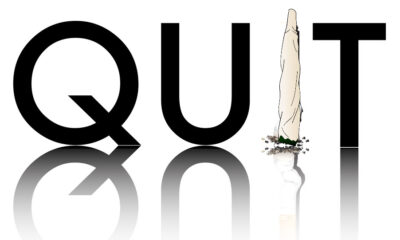

Why Quitting Alcohol or Weed Won’t Heal the Pain That Caused You to Start Using Them in the First Place
-


Karma Koala Podcast 247: Speaking with Dr. Natalie Corthésy senior lecturer university of West Indies & Enrico Bonadio professor of law City St George’s University of London about their forthcoming Edward Elgar title, “Intellectual Property and Cannabis”
-


MJBizCon offers speakers chance to share cannabis insights, shape industry
-


The Best Tariff Friendly Cocktails
-


Cannabis Consumers Are Being Hit By The Tariffs
Cannabis News
The Cannabis Rescheduling Ruse – White House Says No Action Planned on Cannabis Reform, Hate to Say I Told You So!
Published
14 hours agoon
April 5, 2025By
admin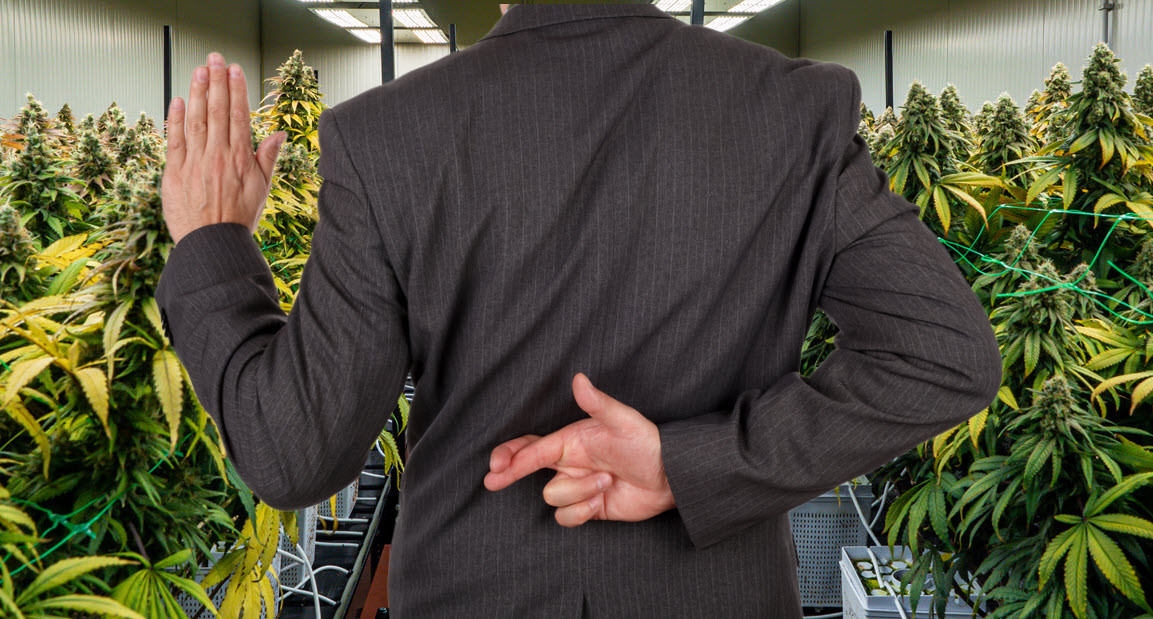
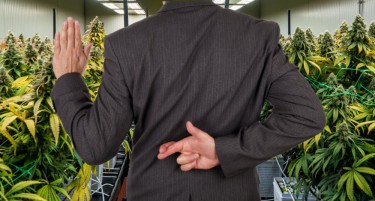
The Rescheduling Ruse: Why I Told You So
In a move that surprised absolutely no one who’s been paying attention, the White House recently announced it has “no action planned” on marijuana reform. Yes, the same marijuana reform that President Trump enthusiastically backed on the campaign trail just weeks before Election Day.
The writing was on the wall all along, folks. I’ve been telling you for months that the much-hyped rescheduling of cannabis from Schedule I to Schedule III was nothing more than political theater – a carefully choreographed dance designed to generate headlines without delivering substantive change. And here we are, with yet another administration putting cannabis reform on the back burner while millions of Americans continue to live under the shadow of failed prohibition policies.
Don’t get me wrong – I’m not here to play political favorites. This isn’t a red versus blue issue. The Biden administration dangled the same carrot, initiating a rescheduling process that conveniently stalled due to “complications” with DEA hearings. Different players, same game.
Let’s take a step back and examine what’s really happening here, because the truth about cannabis reform in America is both simpler and more complex than most people realize.
Trump’s pre-election cannabis conversion was quite the spectacle, wasn’t it? Suddenly, the man who selected Jeff “Good People Don’t Smoke Marijuana” Sessions as his first Attorney General was voicing support for rescheduling, banking access, and even Florida’s legalization initiative.
But as CNN recently reported, “no action is being considered at this time.” The honeymoon didn’t even last through the first dance. The administration’s priorities lie elsewhere – immigration, government spending, foreign policy – while cannabis reform gets shelved alongside countless other campaign promises.
Interestingly, CNN did note that Trump and his transition team attempted to include cannabis banking protections in December’s government funding resolution. This behind-the-scenes effort suggests at least some genuine interest in the issue, but hardly qualifies as the bold reform millions of voters were led to expect.
This pattern should feel familiar. The Biden administration made similar overtures, with the president announcing pardons for federal marijuana possession offenses and directing an administrative review of cannabis scheduling. That process dragged on for over a year, with the DEA repeatedly delaying final action. Biden got the headlines; cannabis users got nothing.
The harsh reality? Cannabis reform makes for good campaign fodder, but terrible governance priorities. Once elected, the political calculus changes dramatically. The motivation to deliver evaporates when the votes are already counted and the special interests start calling in their favors.
At the heart of this perpetual delay lies the Drug Enforcement Administration – an agency whose very existence depends on the continuation of the drug war. Expecting the DEA to facilitate cannabis reform is like asking a turkey to vote for Thanksgiving.
The DEA has mastered the art of procedural obstruction. Under Biden, they scheduled hearings, requested extensions, and effectively ran out the clock. Under Trump, they appear poised to do absolutely nothing, perhaps not even bothering with the pretense of consideration.
The pattern becomes clearer when you look at Trump’s cabinet picks. His nominee to lead the DEA, Terrance Cole, has previously voiced serious concerns about marijuana dangers and linked its use to higher suicide risk among youth. His HHS general counsel nominee, Mike Stuart, is so staunchly anti-cannabis that prohibitionist groups openly celebrated his selection.
Even Robert F. Kennedy Jr., who previously supported legalization, has walked back his stance since being confirmed as HHS Secretary, stating he’s “worried about” high-potency marijuana and deferring to the DEA on rescheduling.
When you stack the regulatory deck with cannabis skeptics, you’ve telegraphed your true intentions no matter what you said on the campaign trail.
Here’s what I’ve been saying all along: meaningful cannabis reform was never going to come from the White House, regardless of who occupied it. The DEA will never willingly relinquish its power, and politicians will always prioritize easier wins over controversial reforms.
The only real path forward is through Congress completely removing cannabis from the Controlled Substances Act. Full stop. No rescheduling, no administrative reviews, no half-measures. Cannabis needs to be descheduled entirely, returning regulatory authority to the states where it belongs.
But while we push for that goal, the real revolution continues on two fronts.
First, state-by-state legalization marches forward. Despite federal inaction, 38 states have medical marijuana programs, and 24 states plus DC have legalized adult use. Each new state that joins the ranks weakens prohibition’s grip and demonstrates the failure of federal policy.
Second, and perhaps more powerful, is what I call “mass defiance of an unjust law.” Every day, millions of Americans peacefully consume cannabis in direct violation of federal law. They grow it in their homes, share it with friends, and build communities around it. This civil disobedience at scale is perhaps the most effective weapon against prohibition.
The federal government simply doesn’t have the resources to enforce cannabis prohibition against a population that increasingly rejects it. When enough people break an unjust law, the law itself becomes unenforceable.
I hate to say I told you so, but… I told you so. The rescheduling promise was never going to materialize, regardless of who won the White House. It was a political mirage, designed to attract voters while requiring minimal commitment.
But don’t mistake my cynicism about federal action for pessimism about our cause. Cannabis reform is happening – it’s just happening from the ground up rather than the top down. Every state that legalizes, every municipality that decriminalizes, every voter who demands change, and yes, every person who peacefully consumes despite prohibition is part of this unstoppable movement.
The lesson here is simple: Don’t put your faith in presidential promises or administrative processes. Put it in your local ballot initiatives, your state legislators, and your own power to reject unjust laws through peaceful non-compliance.
Cannabis prohibition is dying, not because presidents commanded it, but because we the people have decided it must end. That’s the real power in our democracy – not the fleeting promises of politicians, but the sustained will of the citizens.
So next time a candidate promises to fix cannabis laws, remember this moment. Then go out and fix them yourself, one vote, one state, and one act of principled defiance at a time. That’s how real change happens in America, and that’s how we’ll finally end cannabis prohibition once and for all.
CANNABIS UNDER TRUMP 2.0, READ ON…
Cannabis News
Why Quitting Alcohol or Weed Won’t Heal the Pain That Caused You to Start Using Them in the First Place
Published
15 hours agoon
April 5, 2025By
admin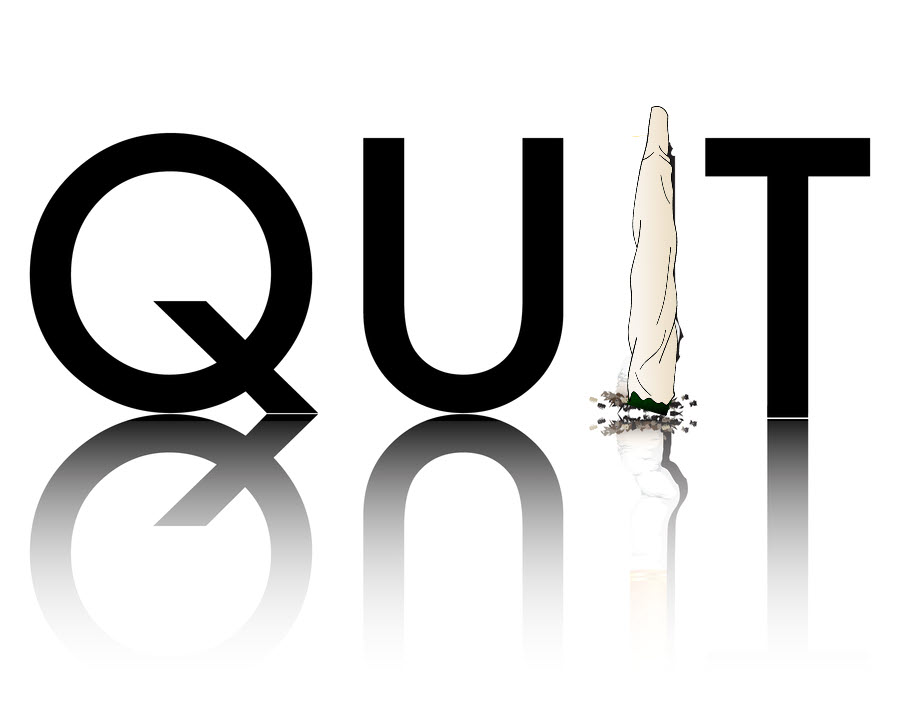
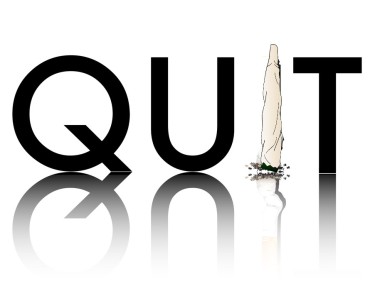
Quitting Won’t Fill the Hole
There’s a pervasive notion that floats around recovery circles—this idea that once you kick your habit, everything will magically fall into place. The clouds will part, the birds will sing, and suddenly life will be worth living again. While it’s true that being addicted to a “thing,” whether substance or act, eventually tallies up consequences that weigh heavy on our souls, the math isn’t quite as simple as “remove addiction, add happiness.”
I’ve watched countless cannabis enthusiasts (and addicts of all stripes) fall into this trap. They sit in circles, eyes gleaming with hope as they declare, “If I could only quit, then everything would be better…” But they’re missing something crucial—their addiction isn’t the source of their discontent; it’s merely a symptom of something deeper.
Addiction, at its core, is a means of dealing with something we cannot name or are desperately trying to avoid. It’s the bandage we slap over a wound without cleaning it first. The cannabis, the alcohol, the gambling, the endless scrolling—these aren’t the disease itself but rather the body’s misguided attempt at self-medication.
Here’s the uncomfortable truth that most recovery programs don’t emphasize enough: if you don’t do the real healing, even if you manage to white-knuckle your way through quitting one addiction, you’ll inevitably find something else to cover that gaping wound. Maybe you’ll trade joints for junk food, or bongs for binge-watching. The face of the addiction changes, but the role it plays remains constant.
Let’s take a deeper dive into this cycle and why simply quitting isn’t enough to truly heal.
First, we must acknowledge that when it comes to pain and addiction, everyone’s journey is unique. What feels like an insurmountable mountain to you might be a speed bump to someone else, and vice versa. There’s no universal scale for suffering, which makes navigating these waters all the more complex.
However, across all these varied experiences, there’s a common trap I’ve seen ensnare countless individuals—what I call the “If/Then Fallacy.” It’s the belief that one singular thing is the root cause of all our discomfort. This is where addicts often say, “If I can only kick this addiction, then my whole life would be better.” While this may seem logical on paper, it’s a deeply flawed perspective.
The real issue rarely lies with the substance or behavior itself but with something deeper—something the addiction is helping us avoid or cope with. Whether it’s trauma, depression, anxiety, or simply the existential weight of being human in an increasingly disconnected world, there’s usually a wound beneath the bandage.
Furthermore, the “If/Then” scenario places your healing, joy, and accomplishments in a fictional future state. “If I stop smoking weed, then I’ll finally have the motivation to start that business.” “If I quit drinking, then my relationship will improve.” These statements create a dangerous binary—because when the “if” is satisfied but the “then” doesn’t materialize, where does that leave you? Often, it leads to “If that didn’t work, then what’s the point of trying anything?”
This thinking creates a perfect setup for relapse or substituting one addiction for another. After all, if quitting didn’t magically transform your life as promised, why continue to deny yourself that temporary relief?
If you’ve been considering quitting cannabis or any other addiction, and you believe it to be the sole source of your unhappiness, I strongly urge you to reconsider your framework. The cannabis, or your relationship with it, is likely just a mask for your real pain. If you want to truly liberate yourself from the burden of addiction, you need to develop the capacity to sit with your pain, examine it, and cultivate joy despite it—not because it disappeared.
This article was inspired by a post I came across while scrolling through Reddit the other day—one of those moments where someone’s raw honesty stops you mid-scroll. A 32-year-old man shared that after smoking cannabis and drinking 4-6 beers daily for nearly his entire 20s, he had finally managed to quit both. No cannabis for almost six months, no alcohol for three. A significant achievement by any measure.
Yet instead of the transformation he expected, he felt “MISERABLE.” Despite taking medication for ADHD and anxiety, and despite removing substances that conventional wisdom says should improve his mental health, he felt no positive change. In fact, he felt worse, as if he’d “stopped doing things that were fun for me, or at least making life bearable.”
His post ended with a plea that broke my heart: “Is this just how I’m going to feel now? Does this go away eventually?”
This redditor’s experience perfectly illustrates the point—even when you manage to power through the physical and psychological challenges of quitting an addiction, your mental and spiritual state doesn’t necessarily transform as a result. His baseline remained exactly the same, perhaps even dipping lower without the chemical crutches he’d relied on for so long.
When you’re changing habits but not experiencing the promised benefits, it’s a clear sign that your discomfort or pain isn’t primarily coming from the substance. The cannabis or alcohol wasn’t creating your misery—it was masking it, providing temporary relief from a deeper issue that remains unaddressed.
This is something we all must consider when facing our compulsions. If you find yourself in a situation where you want to stop a behavior but simply can’t, it might be time to look deeper. Ask yourself, “Why do I do this activity?” And then ask “why” five more times, each answer digging a layer deeper toward the root cause.
Why do I smoke cannabis every night? Because it helps me relax. Why do I need help relaxing? Because my mind races with anxiety. Why does my mind race with anxiety? Because I’m worried about my future. Why am I worried about my future? Because I don’t feel secure in my career path. Why don’t I feel secure in my career path? Because I never really chose it—I fell into it. Why does that bother me? Because I feel like I’m not living authentically or pursuing my true passions.
Once you’ve excavated to this deeper level, you can begin to address the root causes directly. Perhaps the issue isn’t the cannabis at all, but rather that you need to reassess your career path or find meaning outside of work. Without this deeper work, quitting the substance becomes an exercise in willpower rather than healing.
Your addiction isn’t necessarily the root cause of your issues—it’s often just the most visible symptom. If you’re depressed, anxious, or feeling lost, it’s not primarily because of the substance; it’s because of something deeper that the substance helps you manage or forget temporarily.
Unless you actually do the internal work on these matters—examining your pain, seeking appropriate mental health support, rebuilding healthy relationships, finding meaning and purpose—no matter what you quit or how long you stay “clean,” you’ll likely find yourself seeking new ways to shield yourself from the pain. The prison isn’t cannabis or alcohol; it’s the unhealed wound those substances help you endure.
If you’re struggling right now, it’s absolutely important to seek help. That might mean therapy, support groups, or speaking with a healthcare provider about potential underlying mental health conditions that need treatment. But alongside that external support, commit to the honest and difficult work of looking inward. Ask yourself what you’re truly trying to avoid when you reach for that joint or that drink.
At the end of the day, we all have our struggles. If yours involves cannabis at this point in your life, there’s no judgment here. I’ve been there myself. But I’ve also learned that true healing rarely comes from simply removing something from your life—it comes from adding understanding, self-compassion, and addressing the real gaps in your heart and mind that the substance was never capable of filling in the first place.
The void can’t be filled by quitting. But quitting might just give you the clarity to finally see what the void truly needs.
QUITTING CANNABIS, READ ON…
THE STONER’S GUIDE TO QUITTING WEED – WAIT, WHAT…WHY?
Cannabis News
Scientists Now Think That One Compound in the Cannabis Plant Can Replace All Opiates
Published
3 days agoon
April 3, 2025By
admin

Which Cannabis Compound Do Scientists Think Can Replace Opiates?
…And Why This Is Important
Opiates are a type of pharmaceutical drug that’s been made from the opium poppy plant. While it’s somewhat a ‘natural’ substance that’s been extracted from the fibers and sap of the opium poppy plant, these are extremely dangerous sedatives that act on the central nervous system. However, there are completely synthetic opioids as well, which are manufactured entirely in laboratories.
Famous examples of well-known and widely-used opiates today include heroin, codeine, and morphine. They all work similarly, binding to the brain’s opioid receptors and users feel a drastic reduction in pain. It also causes users to feel euphoric, drowsy, or sleepy. Common side effects include constipation and nausea.
Because opiates are powerful for dulling one’s pain perceptions, they have become commonly prescribed by doctors and hospitals for pain relief. That said, opiates have become one of the world’s most addictive, dangerous, and fatal drugs – and you can get prescribed it right by your very own physician. Repeated use of opiates can easily lead to dependence and addiction, and eventually consuming high doses can drastically slow down breathing, and cause brain damage, or even death.
Since doctors still keep prescribing opioids, this has resulted in the deadly Opioid Epidemic, which has killed thousands of people. It’s a worrisome public health crisis, most especially because of fentanyl, an illegally manufactured opioid which is said to be 50 times more potent than heroin.
Could The Answer To The Opioid Epidemic Lie In Cannabis…Terpenes?
The past few years have shown that cannabis legalization is critical for surviving the opioid epidemic, and reducing overall opioid consumption.
The results of a recent research paper, which builds on past studies conducted by Dr. John Streicher, who is a member of the Comprehensive Center for Pain and Addiction, reveals fascinating findings. According to Streicher, cannabis terpenes were found to provide relief in inflammation models as well as on neuropathic pain caused by chemotherapy.
For the study, Streicher and his research team analyzed 4 kinds of terpenes that are found in mid to high levels in Cannabis sativa plants: linalool, geraniol, beta-caryophyllene, and alpha-humulene. They discovered that each terpene produced significant pain relief among mice subjects with fibromyalgia and post-operative pain, and among the terpenes, geraniol was found to be the most powerful.
“Our research is showing that terpenes are not a good option for reducing acute pain resulting from an injury, such as stubbing your toe or touching a hot stove; however, we are seeing significant reductions in pain when terpenes are used for chronic or pathological pain,” he said. “This study was the first to investigate the impact of terpenes in preclinical models of fibromyalgia and post-operative pain and expand the scope of potential pain-relieving treatments using terpenes,” Streicher said.
Cannabis terpenes are the compounds responsible for the aromatic profile of each strain; they are located in the plant trichomes. Not only do they contribute to each strain’s unique flavor and odor, but they also have valuable therapeutic and medicinal benefits. There are around 150 kinds of terpenes known today, though in the entire plant world, there are known to be some 20,000 terpenes.
Understanding the therapeutic benefits of terpenes is incredibly valuable also because they don’t contain THC (tetrahydrocannabinol), the compound in marijuana that gets you high.
“With fibromyalgia, there isn’t much of an understanding of what the pain state is, and there are not a lot of great options for treating it,” explains Streicher. “Our findings show that terpenes may be a viable treatment option for fibromyalgia pain, which could potentially have a large impact and make a difference for an under-treated population.”
Other Studies
This is not the first time that cannabis terpenes have been found to demonstrate excellent pain-relieving properties. It must be noted that just like what Streicher says, terpenes seem to do better with chronic pain management, instead of acute pain management.
Another study from 2024, which was published in The Journal of the Association for the Study of Pain, was conducted by researchers at the University of Arizona and the National Institutes of Health. The investigators analyzed the analgesic properties of different terpenes including geraniol, humulene, linalool, pinene, and caryophyllene among mice subjects with chemotherapy-induced peripheral neuropathy.
According to the researchers, all the terpenes delivered analgesic effects that were equivalent to around 10 mg/kg of morphine. It was also interesting to note that administering both morphine and terpenes together at low doses resulted in ‘enhanced’ pain-killing effects.
“Together these studies identify cannabis terpenes as potential therapeutics for chronic neuropathic pain,” said the investigators.
There have also been other studies that have found that combining cannabis with opioids can indeed provide long-lasting pain relief. It comes with the added benefit of reducing opioid doses needed for effective pain control. This phenomenon is called opioid-sparing. These types of protocols can be beneficial for patients who suffer from severe, chronic pain caused by cancer, arthritis, joint problems, fibromyalgia, diabetes, post-surgical pain, migraines, nerve damage, and so much more.
Conclusion
Learning more about the pain-killing properties of terpenes is extremely valuable for the medical community, patients, and even society as a whole. We can all do with less opioid addictions because it has torn families apart, and caused the deaths of thousands of people.
Terpenes, or cannabis in general, offer a natural and safe alternative that can be complementary to other pharmaceutical treatments designed to reduce pain.
SWAPPNG OPIOIDS FOR CANNABIS, READ ON…

The Cannabis Rescheduling Ruse – White House Says No Action Planned on Cannabis Reform, Hate to Say I Told You So!

Why Quitting Alcohol or Weed Won’t Heal the Pain That Caused You to Start Using Them in the First Place

Karma Koala Podcast 247: Speaking with Dr. Natalie Corthésy senior lecturer university of West Indies & Enrico Bonadio professor of law City St George’s University of London about their forthcoming Edward Elgar title, “Intellectual Property and Cannabis”

MJBizCon offers speakers chance to share cannabis insights, shape industry

The Best Tariff Friendly Cocktails

Cannabis Consumers Are Being Hit By The Tariffs

The Best Tips To Update Your Wardrobe

Former New York Knick Iman Shumpert debuts ‘TSA Approved’ legal cannabis brand

How New York pot pioneers made it to legal dispensary shelves

Scientists Now Think That One Compound in the Cannabis Plant Can Replace All Opiates

Distressed Cannabis Business Takeaways – Canna Law Blog™

United States: Alex Malyshev And Melinda Fellner Discuss The Intersection Of Tax And Cannabis In New Video Series – Part VI: Licensing (Video)

What you Need to Know

Drug Testing for Marijuana – The Joint Blog

NCIA Write About Their Equity Scholarship Program

It has been a wild news week – here’s how CBD and weed can help you relax

Cannabis, alcohol firm SNDL loses CA$372.4 million in 2022

A new April 20 cannabis contest includes a $40,000 purse

Your Go-To Source for Cannabis Logos and Designs

UArizona launches online cannabis compliance online course
Trending
-

 Cannabis News2 years ago
Cannabis News2 years agoDistressed Cannabis Business Takeaways – Canna Law Blog™
-

 One-Hit Wonders2 years ago
One-Hit Wonders2 years agoUnited States: Alex Malyshev And Melinda Fellner Discuss The Intersection Of Tax And Cannabis In New Video Series – Part VI: Licensing (Video)
-

 Cannabis 1012 years ago
Cannabis 1012 years agoWhat you Need to Know
-

 drug testing1 year ago
drug testing1 year agoDrug Testing for Marijuana – The Joint Blog
-

 Education2 years ago
Education2 years agoNCIA Write About Their Equity Scholarship Program
-

 Cannabis2 years ago
Cannabis2 years agoIt has been a wild news week – here’s how CBD and weed can help you relax
-

 Marijuana Business Daily2 years ago
Marijuana Business Daily2 years agoCannabis, alcohol firm SNDL loses CA$372.4 million in 2022
-

 California2 years ago
California2 years agoA new April 20 cannabis contest includes a $40,000 purse





